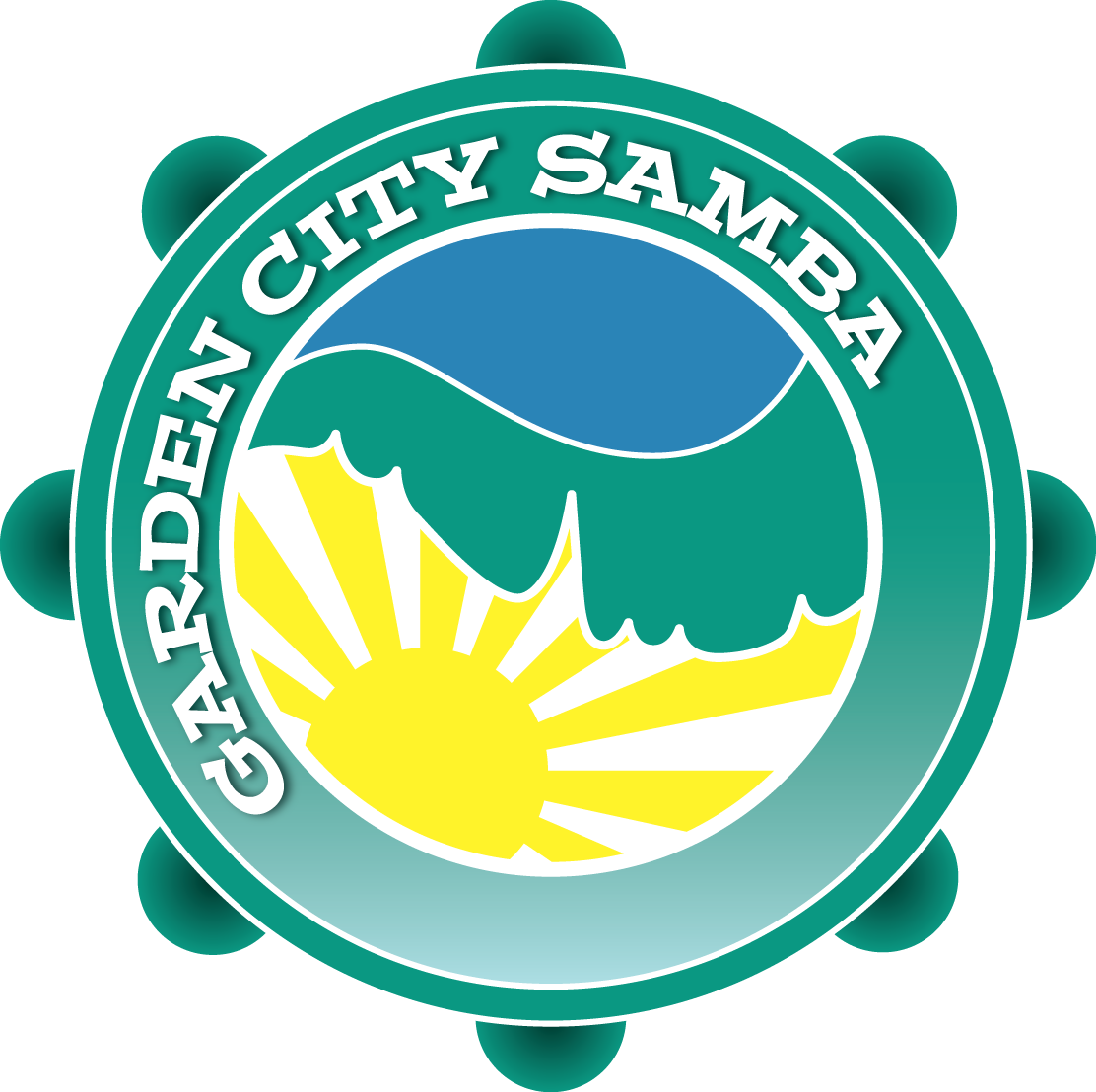Here’s a playlist with a series of short videos that demonstrate basic playing techniques for each instrument.
-
Agogo demoIntroduction to playing the agogo
-
Tamborim demoIntroduction to playing the tamborim
-
Ganza demoIntroduction to playing the ganza
-
Timba demoIntroduction to playing the timba
-
Repique demoIntroduction to playing the repique
-
Caixa demoIntroduction to playing the caixa
-
Surdo demoIntroduction to playing the surdo
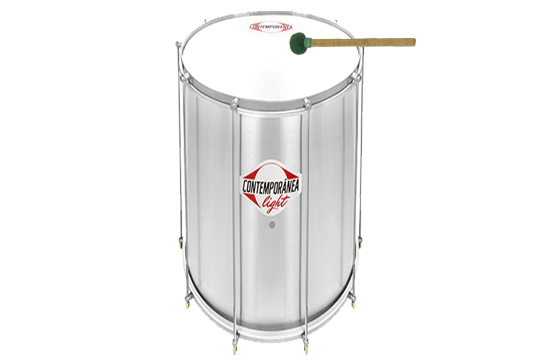
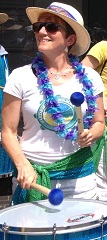
SURDO (soor-doh)
Surdos are large cylindrical drums with skins on both ends. Strapped over the shoulder the top skin is played with one or two beaters (depending on the style) producing a bass sound. The surdo rhythm creates the heartbeat in the Samba and provides the foundation for the patterns of the other instruments.
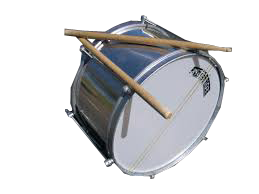
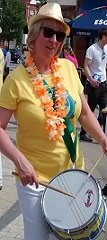
CAIXA (cash-a)
A snare drum found in most percussion ensembles in Brazil. Used to provide stability, swing and to drive the band playing either accents on to the beat or syncopated lines.
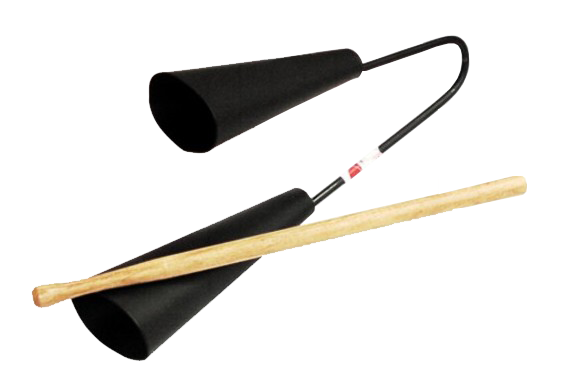
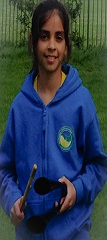
AGOGO (a-go-go)
Coned shaped, pair of metal tuned bells attached to a handle. The small bell produces a high sound and the large bell a lower sound. They’re played with a wooden stick to create repetitive melodies.
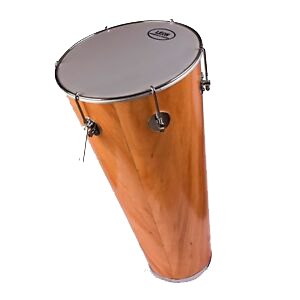
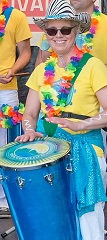
TIMBAU (chim-bow)
The Timbau has a conical wooden shell, a plastic skin and is played with hands. You get a deep bass, dry open tones and sharp slaps all on one instrument! Great for soloing, grooving and unison phrasing.
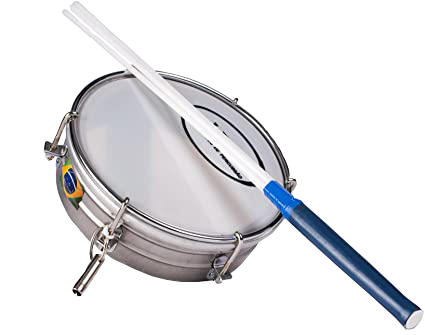
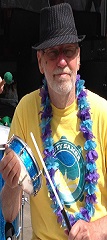
TAMBORIM (tam-bor-him)
Tamborims are one-headed drums about six inches in diameter and played with a thin stick or a plastic stick with several prongs. Typically playing short repetitive patterns and sometimes longer phrases that punctuate the music.
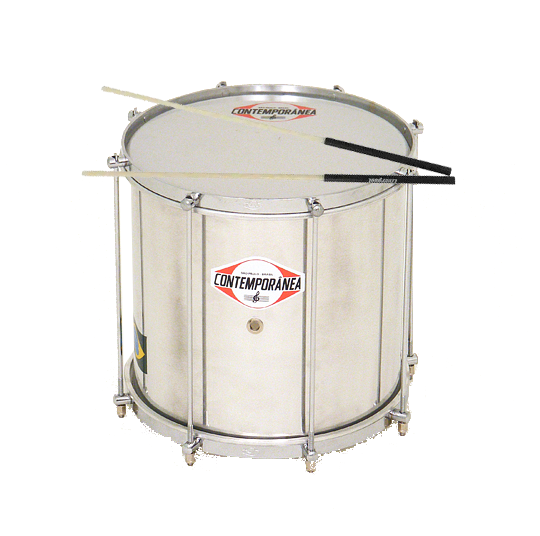
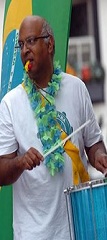
REPIQUE (hepi-key)
This instrument acts as the lead drum of an ensemble and plays intros, endings and breaks. It is a double headed drum which is tuned high. In samba it is played using a stick and hand technique, and in samba reggae, it’s played with two thin sticks.
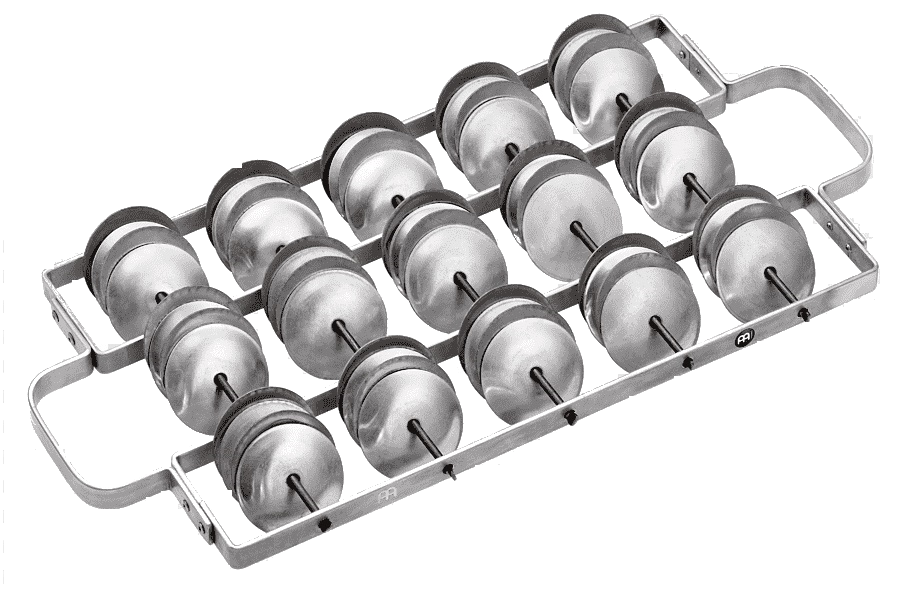

CHOCALHO (show-cal-yo)
Chocalhos have a metal-frame with metal jingles. Held with both hands, they’re played with back and forth movements and drive the music along.
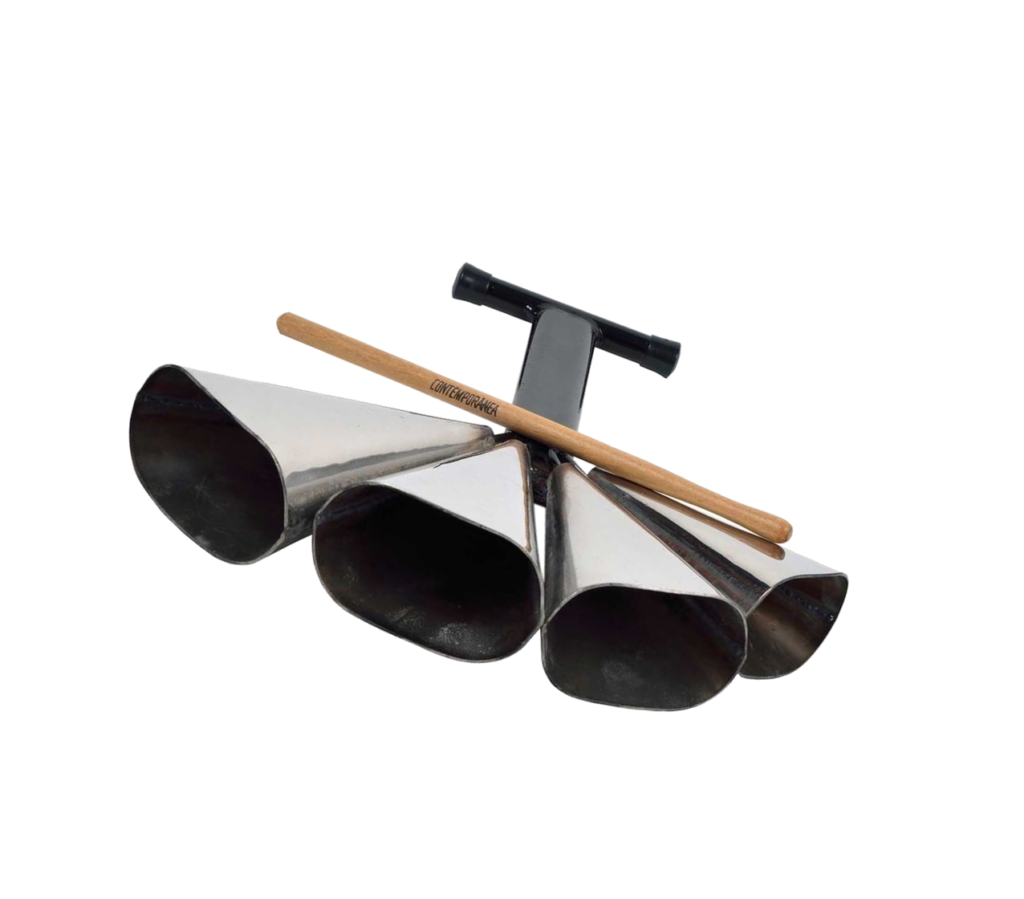
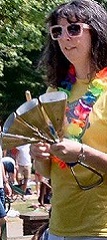
4-TONE AGOGO
4 bells of different sizes means you can play more complex melodies. As they’re a little heavy, you hold the instrument in front of you and rest the bar at the end of the handle against your body.
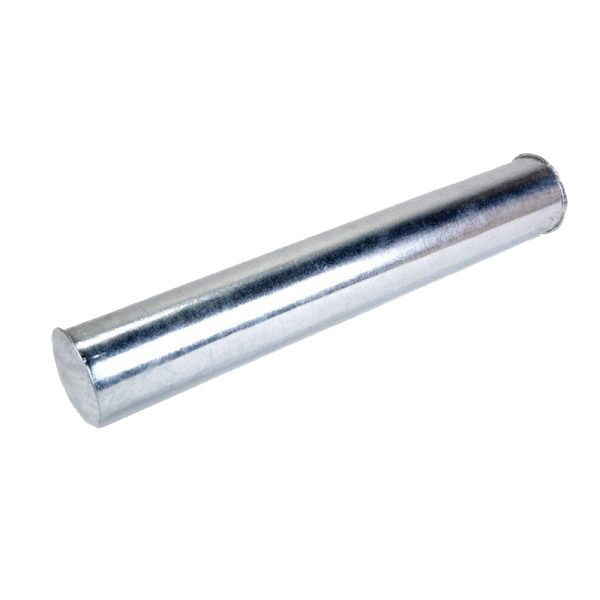
GANZA (gan-zah)
Fulfils the same function as the chocalho and it is played with the same technique, but it has a softer sound.
